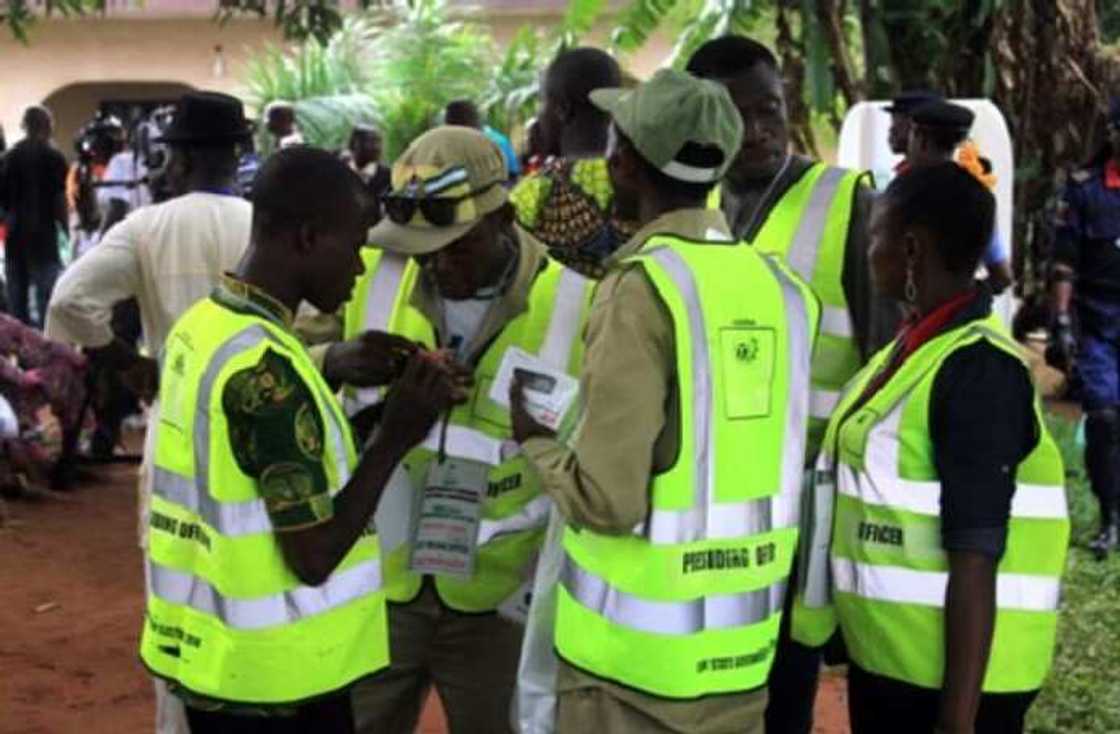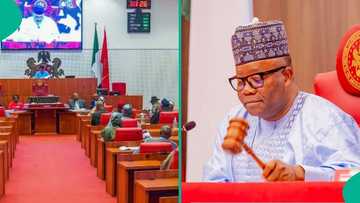By-Election: How Parties That Were Not Declared as Winners May Reclaim Victory Eventually
- Parties that were not declared winners in a Nigerian by-election still have a legal pathway to challenge the results through the Election Tribunal
- The process involves strict timelines, detailed evidence, and formal hearings that uphold the integrity of the electoral system
- This report outlines the key steps and legal mechanisms by which aggrieved candidates may reclaim victory
In Nigeria’s dynamic electoral landscape, the declaration of results does not always mark the end of the contest.
Political parties and candidates who were not declared winners in a by-election may still reclaim victory through a structured legal process.

Source: Twitter
The Election Tribunal offers a formal avenue for challenging outcomes, ensuring transparency and accountability in the democratic system. Here’s how the process unfolds:
1. By-election petition initiation, first step towards reclaiming victory
The journey to contesting a by-election result begins with the filing of a petition. Aggrieved parties—whether candidates, political parties, or concerned individuals—must submit a formal written complaint to the Election Tribunal. This petition serves as the foundation for challenging the declared outcome, often citing electoral malpractices or procedural irregularities.
2. By-election petition time limit, why speed is crucial
Under Nigerian electoral law, time is of the essence. Petitioners have a strict 21-day window from the date of the Independent National Electoral Commission’s (INEC) declaration of results to file their case. This uniform deadline applies across presidential, governorship, National Assembly, and State House of Assembly elections. The time-bound nature of this process ensures swift resolution and prevents prolonged uncertainty in governance.
3. By-election petition grounds, what can be challenged
Petitions must clearly state the grounds for contesting the election. These may include allegations of vote rigging, misconduct by electoral officials, irregularities in the voting process, or questions surrounding a candidate’s eligibility. The petitioner is expected to provide detailed claims backed by credible evidence to support their challenge.
4. By-election petition parties, who is involved
Every election petition involves multiple parties. The petitioner initiates the challenge, while the respondent—typically the declared winner or their party—defends the result. Additional interested parties may also be included, depending on the nature of the dispute. Each party has the right to respond and present their case before the tribunal.
5. By-election petition evidence, building a solid case
Supporting documentation is vital. Petitioners must present relevant materials such as result sheets, voter registers, witness statements, photographs, and videos. The tribunal places significant weight on the quality and relevance of this evidence when determining the outcome of the petition.
6. By-election legal representation, advocates in action
Legal practitioners play a central role in election petitions. They ensure that the parties’ interests are effectively represented, legal arguments are clearly articulated, and proceedings follow due process. Skilled representation can significantly influence the tribunal’s interpretation of the case.
7. By-election pre-hearing session, setting the stage
Before the main hearing, the tribunal conducts a pre-hearing session. This phase addresses preliminary objections, technicalities, and jurisdictional issues. It helps streamline the process and determine whether the petition meets the necessary legal criteria to proceed.
8. By-election pleadings exchange; formalising the argument
Following the pre-hearing, the tribunal sets timelines for the exchange of pleadings. These written statements outline each party’s legal arguments and the evidence they intend to rely on. Pleadings provide clarity and structure, allowing the tribunal to understand the scope of the dispute.
9. By-election main hearing, the tribunal in action
During the main hearing, the tribunal examines all submitted evidence and listens to legal arguments. Witnesses may be called, cross-examinations conducted, and expert opinions sought. This phase is critical for assessing the credibility of claims and determining whether the election result should stand.
10. By-election tribunal judgment; final verdict
After thorough deliberation, the tribunal delivers its judgment. It may uphold the declared result, annul the election, order a re-run, or issue other remedies as permitted by law. This final decision reflects the tribunal’s assessment of the evidence and its commitment to electoral justice.
For parties seeking to reclaim victory in a by-election, the Election Tribunal offers a robust legal pathway. While the process demands precision, evidence, and legal expertise, it remains a cornerstone of Nigeria’s democratic framework—ensuring that every vote and every voice is accounted for.

Source: Depositphotos
Edo election tribunal suddenly relocates to Abuja
Legit.ng earlier reported that the Edo state governorship election petition tribunal has announced its relocation from Benin City to the federal capital territory (FCT), Abuja.
In a notice dated Friday, January 24, 2025, and signed by the tribunal secretary, Mu’azu Bagudu, parties to the case were informed of the relocation.
The Punch noted the update in a report on Friday evening, January 24.
Source: Legit.ng






